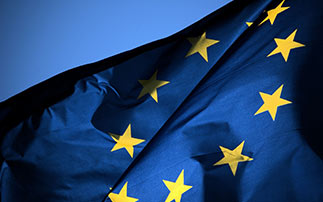Forty years after the first European elections held by direct universal suffrage, citizens of Member States are called to the polls from 23 to 26 May to elect their representatives in the European Parliament. Currently composed of 751 members, the Parliament is the only institution of the EU directly elected by European citizens.
What do MEPs do?
The majority of national laws come from directives and regulations adopted at the EU level. Members of Parliament (MEPs) amend and adopt European legislation. They also have other functions such as supervising expenditure and adopting the EU’s annual budget. In addition, they ensure respect for democracy, in particular through the control of the European Commission.
Why vote?
Directly appointed by citizens, MEPs represent them for a 5-year term in Parliament. This is a unique opportunity for Europeans to express their position by choosing representatives who embody their ideological and partisan preferences. Hence, European voters have the ability to influence European policies.
EU democratic deficit: myth or reality?
Following criticism of its democratic deficit, the EU demonstrated a commitment to democratisation by introducing several improvements over the years: the strengthening of Parliament’s budgetary, legislative and appointment powers.
As for the empowerment of citizens in the European political arena, the EU has set up, in addition to elections, the European Citizens’ Initiative (ECI). It is an operational tool created in 2012, allowing European citizens to submit a legislative proposal.
Furthermore, financial tools are implemented by the EU, thus, enabling European citizens to feel integrated and concerned. For instance, the “Europe for Citizens” programme funds projects which promote remembrance, mutual knowledge of European citizens and their rapprochement with the European Union. Erasmus + also promotes commitment to European citizenship through education, training, youth and sport. By offering citizens the opportunity to reside in other Member States, the EU contributes to their involvement and understanding of their status as European citizens.
The EU institutions are governed by democratic principles. Indeed, the Parliament is directly elected by European citizens. Its co-decision maker, the Council, brings together Ministers of Member States. The President of the Commission is elected by Parliament and finally, the list of Commissioners is adopted by the Council on a proposal from the Member States and is subject to a vote of approval by Parliament. The assertion of an undemocratic Union does not reflect reality.
So why this insistence on the European Union’s democratic deficit? One of the main responses is the low turnout of citizens at the European elections. The ever-increasing abstention since 1979 calls into question the democratic legitimacy of the EU as a whole. The reason for this abstention rate is in particular the overly technocratic profile of this organisation, whose overall organisational, operational and decision-making processes appear complex to its citizens. The EU must prioritise this issue, through improved communication and education on European issues, in order to better involve its citizens.
This 2019 European election is the ninth since the very first election in 1979. Voting is one’s inherent and inalienable right, let us seize this right and vote!
Hickmah Tagaully




